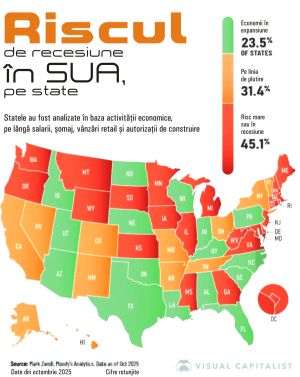
The disastrous economic effects of the pandemic have revealed once again the deep dissensions of the European Union. Disregarding the concept expressed in the English saying that "beggars can't be choosers", Europe's poor countries have asked for lots of free money to "fight" against this crisis.
After the four days and nights of negotiations, Charles Michel, the president of the European Council, said that "it is for the first time in Europe's history when the state budget is tied to climate goals and the compliance with the rule of law in granting funds".
Why did the negotiations take so long? A comment on a Financial Times article offers a very plausible explanation: "The success of the EU summits is determined by the accumulation of sleep deprivation, and in this case the leaders came in rested, after several months of relaxation."
Nevertheless, "I am convinced that an unfortunate, bitter and useless compromise will be reached", the FT reader concludes.
And compromise there was, but it has gone way too far in the meeting of the European leaders, as it has been built on the grave undermining of the European treaties.
How can the president of the European Council speak about the rule of law in the EU, when the 750 billion Euros recovery fund has a major part of it - 390 billion - , made up of grants, which violate Articles 125 and 310 of the European Union treaty?
Is that how the solidarity and unity of the European countries is expressed? In unanimity when it comes to the violation of the fundamental rules of the Union?
In terms of targeting particularly important amounts towards meeting climate-related targets, the situation is just as disastrous.
"The EU fraud concerning the expenditures on climate programs" is the title of a brief analysis by consulting firm Eurointelligence based on a recent report by the European Court of Auditors (ECA), which assesses the environmental programs of the European Commission.
"The EU substantially overestimates the amounts spent on fighting climate changes through accounting tricks", Eurointelligence analysts write, who also stress that "especially where structural funds and those allocated to agriculture are concerned, the proportion of the amounts allocated to combating climate change is almost comically exaggerated".
And that is not all. "We point out that there is a risk of accelerating climate change through applying some cohesion policies and spending on agriculture", the ECA report further states.
How has it come to this tragic irony? Could it be mere stupidity, or "just" incompetence combined with great villainy?
Of course the new 750 billion Euros program will receive the same "treatment", but we are supposed to believe, according to the official statements, that somehow, miracles will happen along the way, that will turn it into a historic success.
In spite of the optimistic statements of the European authorities, there are plenty of voices that claim the opposite. Finnish professor Tuomas Malinen recently wrote on his Twitter account that "The fund will not lead to an economic turnaround in Europe, because it is too small, and the crisis is global", especially as "the economic arguments in its favor make no sense".
Aside from the economic arguments, "the fund will contribute to illegally transforming the EU into a union of transfers and will force its transformation into a federation without the approval of the citizens", Malinen further points out.
Also, aside from a number of obvious effects of the use of these financial resources, such as a bailout of Italy, the Finnish professor states that a "collateral" effect will also be the rescue of the French and German banks.
Other strong arguments that are not of an economic nature are brought forward by Spanish economist Daniel Lacalle. In his opinion, "the European turnaround fund cannot be used as a cover for the perpetuation of politically inflated expenditures", given that "a union based on excessive spending, debts and extractive policies will be destroyed in just a few years".
Lacalle further points out that "the strength of a united group of countries comes from diversity and responsibility", and "solidarity cannot exist without responsibility".
The representatives of the Netherlands, Austria, Sweden and Denmark have accepted the distribution of grants after the introduction of system for auditing their use.
But will these be enough? And who will dare use the veto right, as it has been seen, during the negotiations, that a large palette of hysterical reactions can be used by those begging for money from their European "partners"?Did the mandates won by the government or state leaders present at the summit include the obligation to beg for money, by completely ignoring the significance of that gesture for what is left of national dignity?
And then, who told these political flunkies that abandoning national dignity is the path to follow to build an economically stronger and more competitive European Union?
"Nobody is denying the scale of the problems caused by the Covid-19 crisis, but there are countries that have used it as an excuse to increase their politically motivated spending and they are now asking for free money", Daniel Lacalle further said, citing Spain as an example.
There, the government has kept all spending at the levels it was at during the economic growth and has increased the number of government portfolios and counselors, despite the crisis. Then, the plan for the introduction of the minimum guaranteed income has been introduced, despite the complete lack of any budget or fiscal room.
Furthermore, the Spanish government has increased the budget deficit by 24% in 2019 amid an economic growth of 2% and of record tax incomes, and is now "opposing the introduction of conditions or supervision from other countries for the funds received from the EU", as Daniel Lacalle further writes.
The situation looks familiar, doesn't it? Nevertheless, European politicians irresponsibly promise miracles.
At the end of his analysis, the Spanish economist also states that "the recovery fund is not a solution to the structural problems of many European countries", and "the long-term imbalances of European economies cannot be corrected without structural reforms". But who should launch such reforms, when all the solutions, including the resumption of huge scale money printing by the ECB, are aimed at blocking them, so as to maintain the illusion of the sustainability of the current economic trajectory?
In a series of recent analyses of the causes behind civilization collapses, American analyst Martin Armstrong states that "a civilization flourishes when everyone benefits from progress," while "the decline begins when a group is given a favored status", and for that "there is not even the need to introduce laws guaranteeing the rights of a specific group".
Unfortunately, this "recipe" for decline is followed unquestionably both in our country and in the European Union, where its magnitude is a few times greater.
Under these circumstances, all of the joint anti-crisis programs, be it the free money or new burdensome loans, will only have one effect, the amplification of centrifugal forces, that is, they will only hasten the disintegration of "the first non-imperial empire in history." , a "construction" that has lost its moral compass for a long time already, and the "authorities" are not even trying to look for it anymore.
"The Fund will not lead to an economic turnaround in Europe, because it is too small, the crisis is global, and the economic arguments in its favor don't make any sense". (Tuomas Malinen, economics professor at the University of Helsinki)



























































